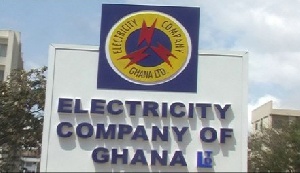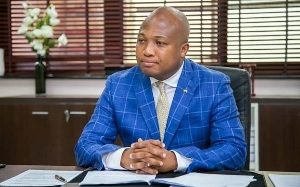The Public Utility Workers Union (PUWU) and the Public Services Workers Union (PSWU) has called on Government to halt the privatisation of Electricity Company of Ghana (ECG).
“We reiterate our strong opposition to the planned privatisation programme under which ECG will be leased to a foreign entity for 25 years as a pre-condition for accessing $ 498.2 million from the United States Millennium Challenge Corporation under the Compact 11.”
The two Unions, particularly urged Government and the Millennium Development Authority (MIDA), implementers of the ECG concession, to rather explore other viable alternatives to transform ECG.
During an interaction with civil society groups in a meeting in Accra, the two Unions alleged that various assessments of the processes toward the privatisation of ECG proved that, “the justification by MIDA for Government to privatise the ECG through the leasing of assets of the Company to a foreign entity for 25 years is unacceptable”.
“MiDA’s justifications for privatisation of ECG are premised on untruths, faulty logic, misinformation and deception. In addition, the Authority has been unreliable in making available necessary information and key details concerning the intended privatisation.”
Mr Richard Amperbeng, General Secretary of PSWU and Mr Ato Bondzi-Quaye, General Secretary of PUWU, took turns to explain the ECG privatisation to representatives of the civil society groups (CSOs), which included Third World Network (TWN), Africa Centre for Energy Policy (ACEP), ISODEC, NETRIGHT, Abantu for Development, ECG, and WACAM, among others.
A communiqué issued at the end of the meeting stated that the imposition of the private sector participation in the ECG is not only an affront to Ghanaians, but also the perpetration of a deception about the challenges in the power sector, many of which are a result of political interference in management.
In the communiqué, PUWU and PSWU said the assertion that tariffs would come down when the foreign entity takes over ECG is misleading, adding that, examples from other countries like Rwanda where the power sector was privatised indicate that tariffs rather witnessed astronomical increase.
The two unions have therefore urged government to first wait and assess the result of the “Strategic Business Units Concept” being piloted in the Ashanti Region as part of the on-going reforms in the ECG, which seeks to turn around the company.
They also asked that ECG should be listed on the Ghana Stock Exchange to raise capital to revamp the Company considering the fact that government is not in a position to provide funding for expansion.
Government has also been urged to allow ECG to source for the needed capital from pension funds from SSNIT and Second Tier as was done in the developed countries where pension funds provide financial support to critical industries whose support for economic development is very vital.
“We believe that these are alternatives worthy of consideration for the revamping of ECG to empower it to deliver on its mandate of supporting Ghana’s economic growth instead of giving out such a vital national asset to a private investor whose main interest will be profit at the expense of the wider national interest”.
Mr Amperbeng queried about the kind of technical evaluation done in the ECG deal and the value of money involved in the transaction, saying, “we have to make sure that we are not short-changed”.
He said as a Unionist, he is concerned about job security for the workers at ECG and the PSWU and PUWU would collaborate with civil society organisations to ensure that the workers keep their job at the end of the day.
Mr Bondzi-Quaye on the other hand said the Unions are not happy about the whole ECG privatisation programme which seemed to be finished, and therefore government should make the issues clearer to the people.
The representatives of the CSOs all supported the idea that the privatisation of ECG be put on hold for further consultations.
Business News of Thursday, 19 May 2016
Source: GNA

















